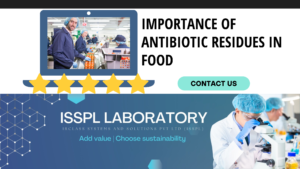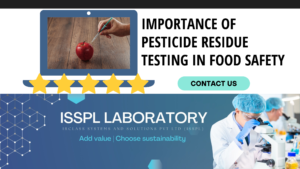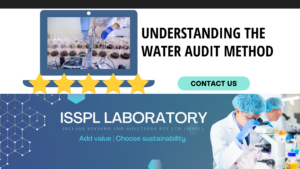An Overview by Team ISSPL - Analytical Testing Laboratory in India
ToggleThe crop quality depends significantly on the soil quality. A successful farm production strategy begins with healthy soil. The crop soil is among the most critical farm assets. It provides the crops with the essential micro and macronutrients. In fact, it is a reservoir of water and nutrients for the harvest. Each type of soil is unique and has distinctive properties.
Soil texture is also different for various reasons, and it cannot be changed. However, there are ways to impact the soil qualities. The farmers can use the best resources and techniques to improve soil quality. It is achievable by managing the optimal nutrient levels and soil pH.
One of the prime factors in managing the best soil quality is consistent soil analysis. Soil analysis is an indispensable solution and a reliable farm practice that determines the accurate amount of crop nutrients in the soil. It also delivers an overview of the chemical, physical, and biological soil attributes. The critical micronutrient measurements in soil or clay are –
- Reviewing and determining the levels of nitrogen, phosphorus, potassium, magnesium, and calcium
- Analyzing soil pH level
- Determining the humus content, available lime, and organic matter in the soil
The essentiality of soil testing – Decode the significance
Soil analysis provides valuable data, essential for soil quality enhancement. One can ease multiple worries by tracking the soil nutrients. In fact, a farmer can conveniently review and moderate the fertilization requisites. The new-age farm management software assists the farmers to the next level.
They can take obtain the best advisory solution to ensure the ideal fertilizer recommendations based on soil testing data. Also, soil analysis promotes the utility of crop nutrient management by defining the accurate levels of pH and nutrients. All these practical benefits have made the soil testing mechanisms ideal in more ways than one.
The world-class infrastructure for soil inspection boosts the data accuracy to deliver the best outcome.
Objectives of soil analysis
The extensive process through which elements like phosphorus, potassium, sulfur, manganese, copper, calcium, magnesium, sodium, and zinc get chemically removed from the soil is called soil inspection. The soil gets measured for the content determination of the necessary nutrients. Reviewing the levels of various content in the sample of soil is comprehensively called Soil Testing. It is a critical diagnostic tool essential for defining the nutrient for plants.
The objectives of soil testing include the following –
- Soil testing helps evaluate the soil fertility and nutrient status. It is vital for providing an overview and index of nutrient availability in the sample.
- Soil inspection promotes the determination of acidity, salinity, and alkalinity issues.
- Soil testing helps provide a clarified picture of the apt amount of manure and fertilizer according to crop.
- One can avoid excess use of fertilizer and ensure environmental safety with soil testing data.
- After crop cultivation, a substantial amount of nutrients gets removed from the soil. It causes loss of soil fertility in the long run. It makes the soil testing process integral to the core.
- Soil testing helps review of the suitability of the clay or soil for crop cultivation.
- Soil inspection helps restore fertility which is a prime factor for crop productivity and sustainability.
- The fertilization program can count on the data obtained from soil testing. It helps determine the crop requisites, soil supplies, fertilizers for cultivation efficiency, etc.
- Routine evaluation of soil fertility helps obtain a status of the cultivation prospects. It is essential to achieve a balanced fertilization program and sustain productivity with the help of soil testing.
- Soil testing can help predict the suitability and probability of gaining a profitable outcome from the chemicals and fertilizers.
Advantages – What makes it the best choice?
Soil testing and analysis help in informed decision-making. One can ensure the best outcome for crop cultivation with accurate data and make decisions based on the scientific study. In fact, it helps reduce risks in the soil like – soil erosion, soil infertility, and degraded lands. Ensure crop and farm profitability in the long term with in-depth soil analysis and testing techniques.
- Soil testing denotes the amount of available macro-nutrients in the soil for the plants
- The inspection results check nutrients that could be a threat to the yield rate
- Determine soil health properties, such as pH, EC, and OC, that affect nutrient levels in the crops
- Increase soil awareness with better knowledge of the soil types and maximize the management options.
- Enhance the soil treatment operations to boost crop cultivation.
Soil inspection also provides an efficient solution for farm management with enhanced chances of profitability. The potential benefit of soil testing makes it ideal for farmers. They can use the reports to reduce operating costs and ensure superior environmental risk management in the long run.
Quality enhancement with an analyzed report
Soil fertility can be determined by reviewing the soil’s biological, chemical, and physical attributes. Properties can include the soil structure, soil texture, and color. All these are visible to the eye, and one needs to evaluate them equally.
Apart from the physical qualities, the chemical composition of the soil has a significant impact. One cannot ignore soil diagnosis and sampling to boost the yield rate. Soil tests are vital to determine the nutrient level and pH content in the clay or soil. The accurate information assists the farmers in determining the optimal quantity of fertilizer and chemical sprays for their farms.
Ensure healthy soil with the best testing solution.
It is high time the world prioritized soil health. It has become an integral aspect. Fertile soils ensure enhanced yields, but it needs a systematic approach.
Soil testing is the foremost step in soil management. One needs expert assistance to resolve the requirements and obtain accurate data on the soil quality. Ensure the best soil health to maximize the crop cultivation rate by connecting with IRCLASS Systems and Solutions Pvt Ltd (ISSPL) laboratory.






